5 Great Virtues to Center Our Lives On!
As we enter a new calendar year, many of us embrace resolutions or new goals to better ourselves. The focus is usually on the mind, body, and spirit. As a Vincentian family, we have five great virtues to center our new year on — Simplicity, Humility, Gentleness, Selflessness, and Zeal.
Every new year is an opportunity to embrace our Vincentian Virtues. When I undertake a new resolution or change in my life, I often find it difficult to keep my full attention on it throughout the course of a year.
We are thrilled to announce this first publication of our new Frédéric’s Five newsletter, which is built on our five virtues. Every week, you will receive this email, which will be an ongoing reminder to grow and live by these essential elements of our Vincentian life.
This new publication will be shorter, more focused, and much easier to get through in today’s busy world. We will continue the popular Servant Leader column written by our Vincentian leadership. This will be followed by a Feature section highlighting newsworthy content, a compact Q&A section, a Calendar of Events section, and a Faith in Action section. Quick links to important Vincentian resources have also been added.
Our goal is that, by highlighting the five virtues, we help readers to keep each virtue close to their hearts and minds as they read the content.
Where did all these wonderful ideas to change the format of our membership newsletter come from? They came from you, our Vincentian family. Over time, we heard your feedback about the things you loved about the e-Gazette, and the things that you felt could be improved.
I would like to give a shout out of appreciation to Jill Pioter, National Director of Marketing and Communications; Pam Hudson Johnson, National Director of Membership Services; Kristen Blacksher, Digital Communications Manager; Tim Williams, Senior Director, Formation & Leadership Development; and the other Vincentian leaders that took all these thoughts and put them together in this wonderful new format.
As I mentioned above, these changes are from input we have received over time, and we want you to continue to give us input by commenting on this article or emailing us at usacouncil@svdpusa.org. Your input will be a gift to us to share through this new publication.
In my past columns, I have talked about my love and admiration for the many Vincentians that I have been blessed to observe, who live lives full of spirituality, friendship, and service. We are so blessed to have so many Vincentians emulating St. Vincent de Paul in their commitment to the five Vincentian Virtues. For a Fred Talk and more information on our Virtues, visit https://members.ssvpusa.org/our-spirituality/the-vincentian-virtues.
I know all of you are keeping those in California devastated by the wildfires in your thoughts and prayers. Be assured that our National Council and our SVdP USA Disaster Services Corporation will respond with a Vincentian compassionate hand of hope to those impacted by this terrible disaster.
Thank you for making 2024 a great year for our Society, and I wish you and your family a 2025 filled with blessings!
Happy New Year,
Michael J. Acaldo
National CEO


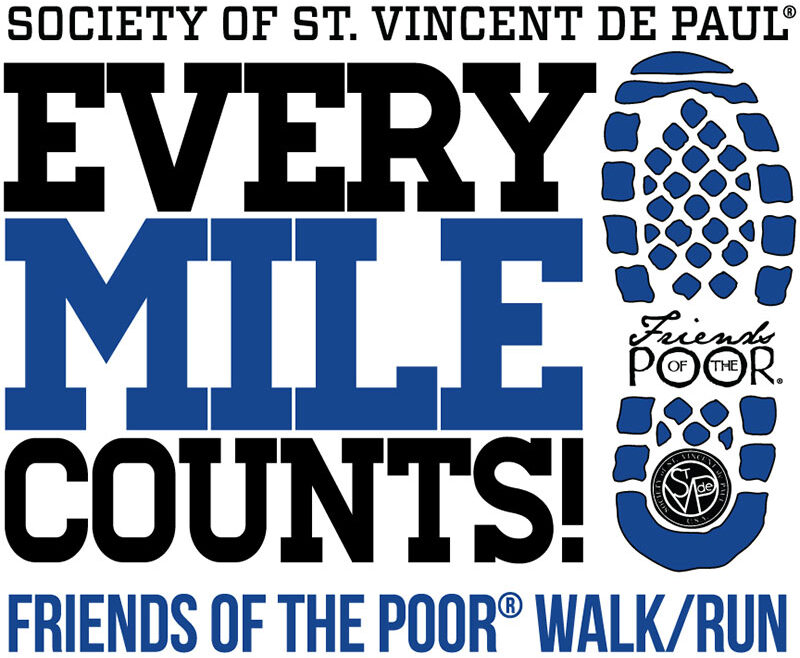
 Even the after-effects of Hurricane Helene couldn’t stop SVdP Anderson, Indiana from hosting their annual Friends of the Poor Walk last September. “This event is the centerpiece of our fundraising for the year,” explains Becky, the event organizer, “so we weren’t going to cancel. When we saw the weather forecast, our local high school allowed us to move into the gym.”
Even the after-effects of Hurricane Helene couldn’t stop SVdP Anderson, Indiana from hosting their annual Friends of the Poor Walk last September. “This event is the centerpiece of our fundraising for the year,” explains Becky, the event organizer, “so we weren’t going to cancel. When we saw the weather forecast, our local high school allowed us to move into the gym.”
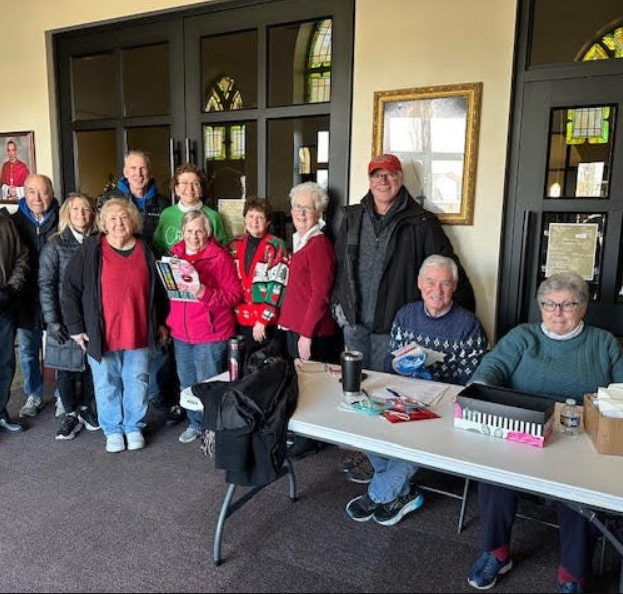
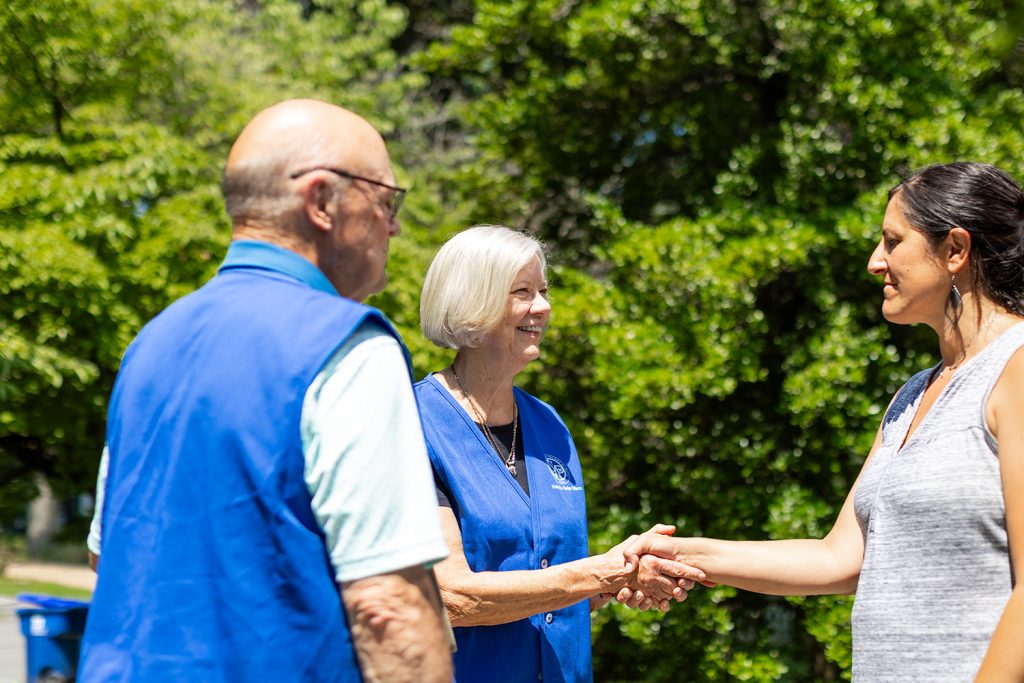 Today, it works like this: Local conferences operate a hotline that neighbors in need may call. After a neighbor leaves their information on their voicemail, a Vincentian follows up for more details. In many cases, the local conference arranges a visit to the caller’s home to learn more about their situation and how they might help.
Today, it works like this: Local conferences operate a hotline that neighbors in need may call. After a neighbor leaves their information on their voicemail, a Vincentian follows up for more details. In many cases, the local conference arranges a visit to the caller’s home to learn more about their situation and how they might help.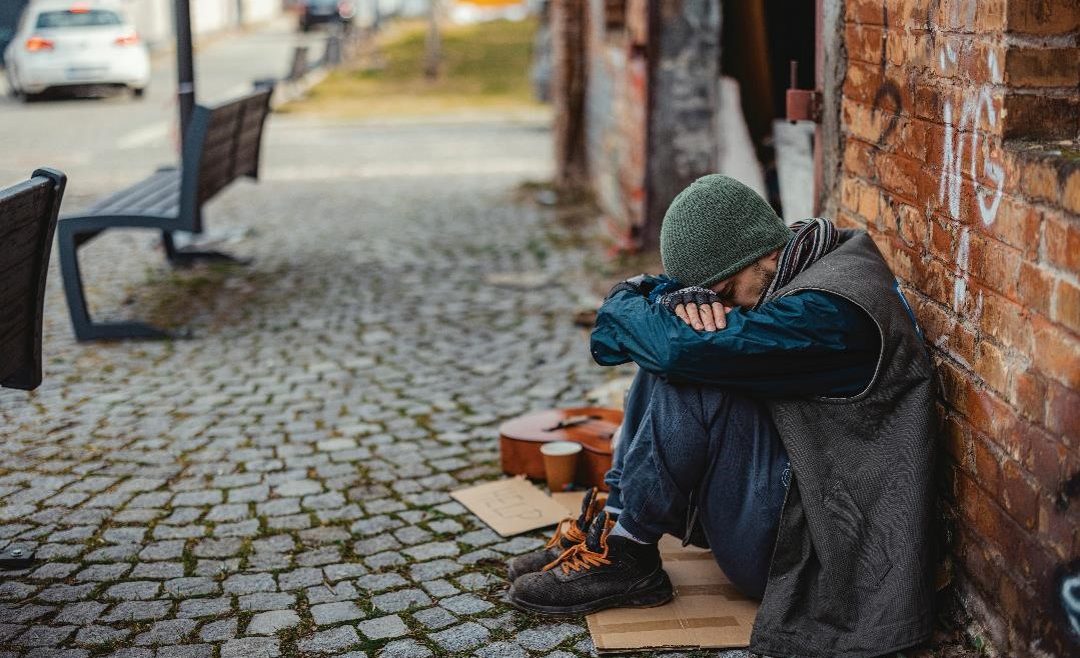
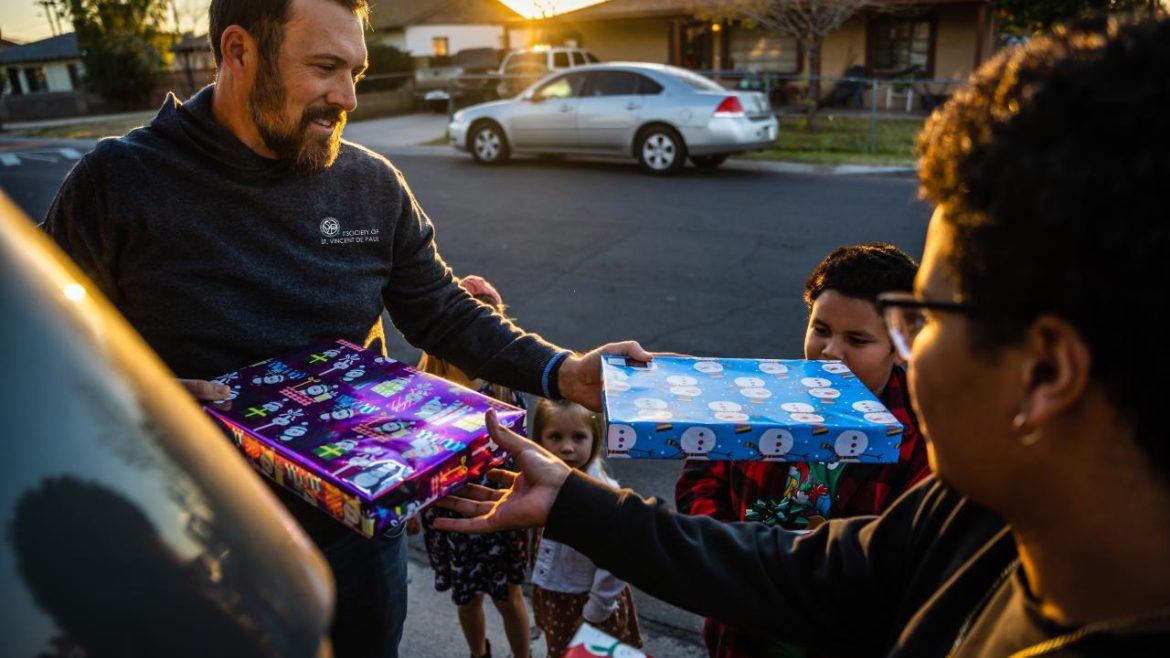
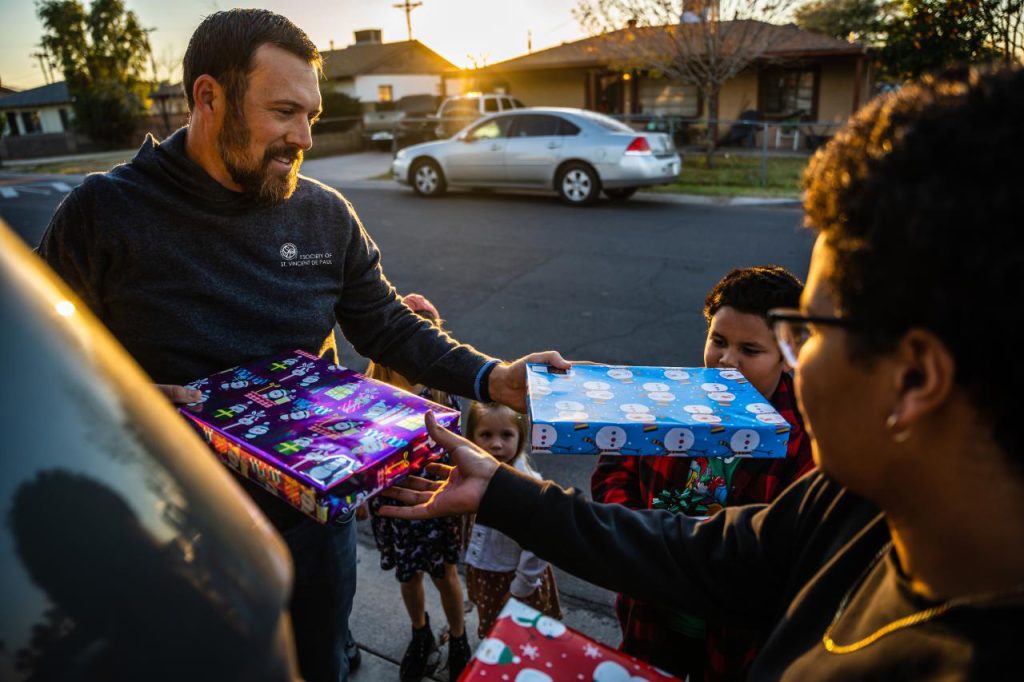 December is a special month for the Society of St Vincent de Paul. Helping those in need is a year-round mission for Vincentians, but there’s a bit more excitement in the air when you’re handing out gifts to grateful, smiling children.
December is a special month for the Society of St Vincent de Paul. Helping those in need is a year-round mission for Vincentians, but there’s a bit more excitement in the air when you’re handing out gifts to grateful, smiling children.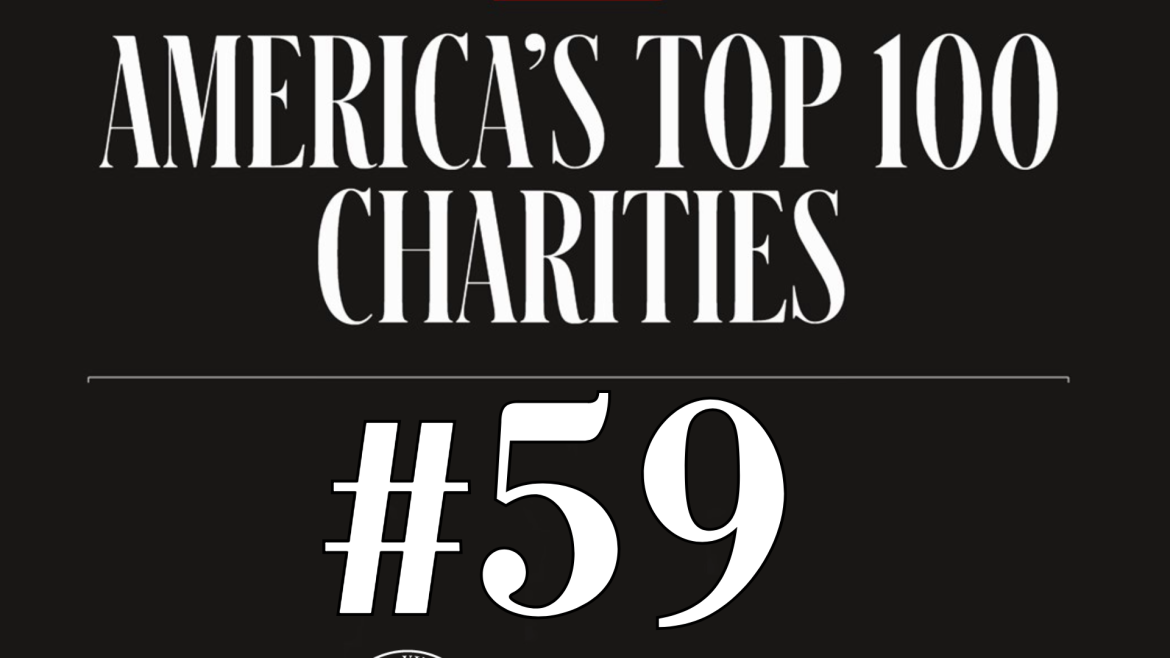
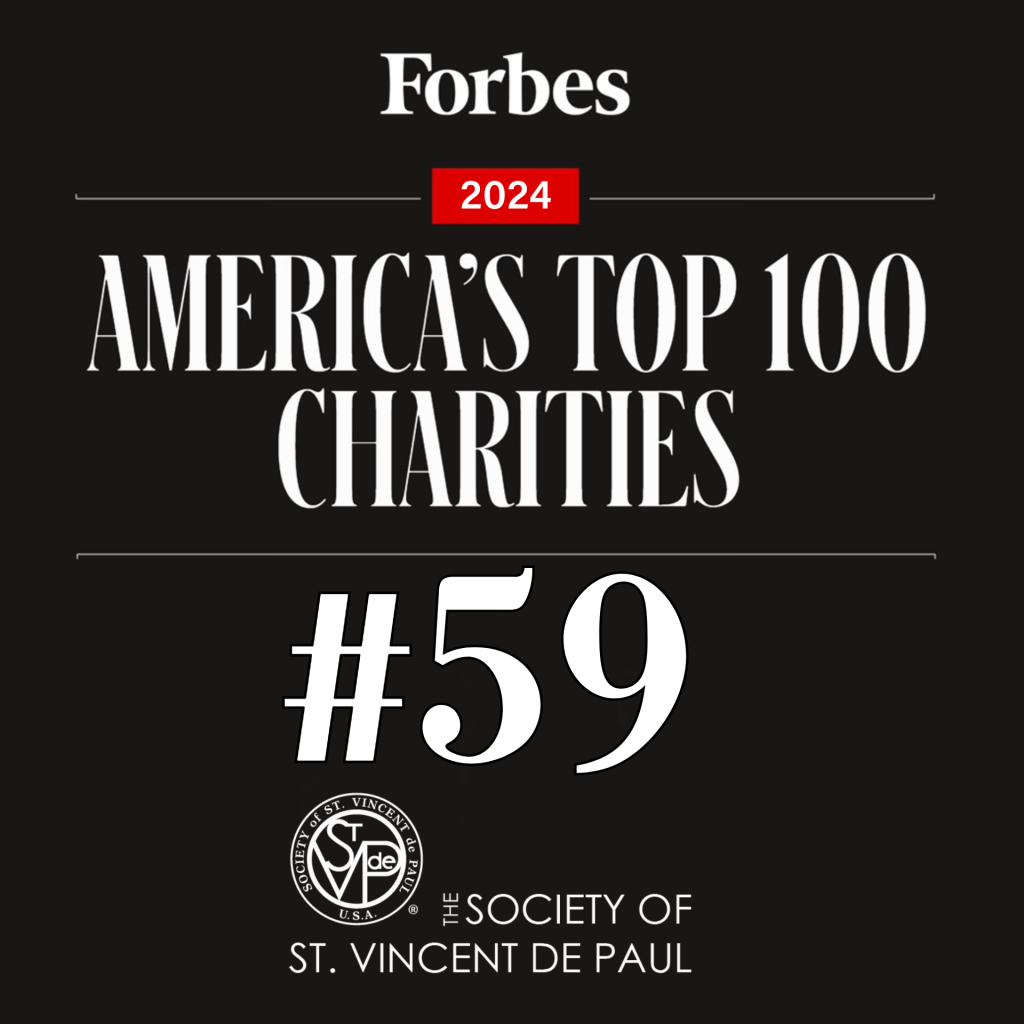 The Society of St. Vincent de Paul USA earned a second consecutive appearance on Forbes magazine’s annual list of Top 100 Charities in the United States, climbing to #59 this year from #75 last year.
The Society of St. Vincent de Paul USA earned a second consecutive appearance on Forbes magazine’s annual list of Top 100 Charities in the United States, climbing to #59 this year from #75 last year.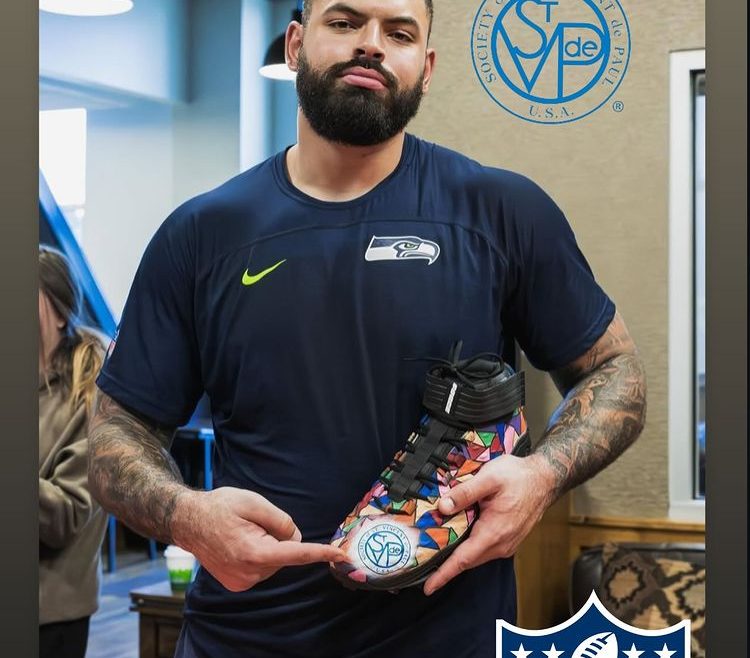
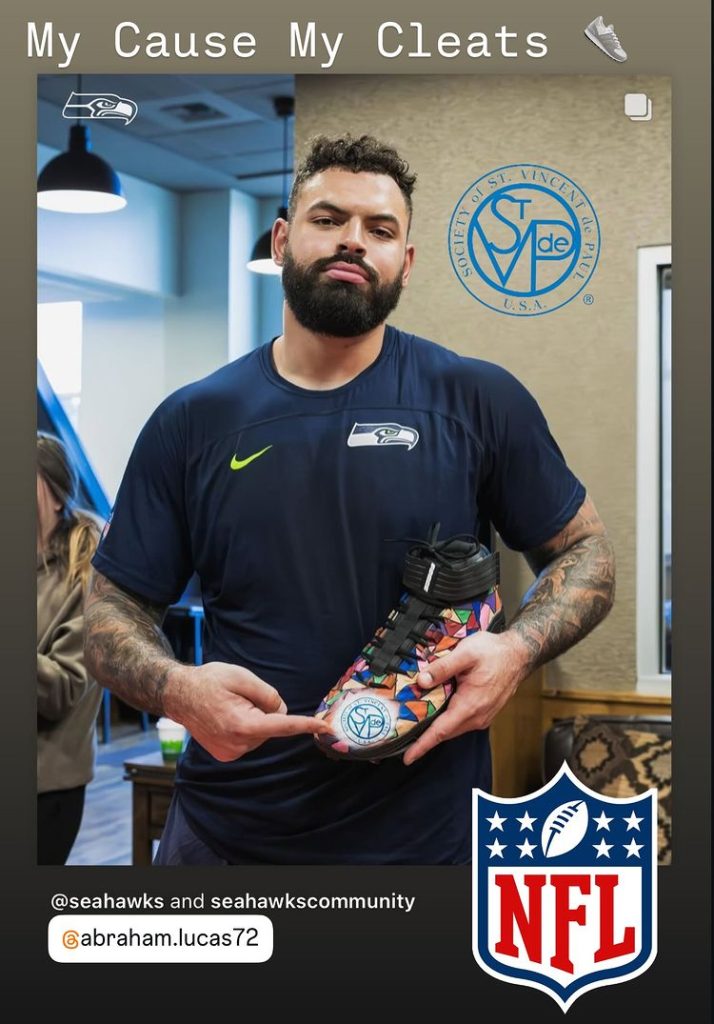 NFL Players wear custom cleats to support St. Vincent de Paul USA
NFL Players wear custom cleats to support St. Vincent de Paul USA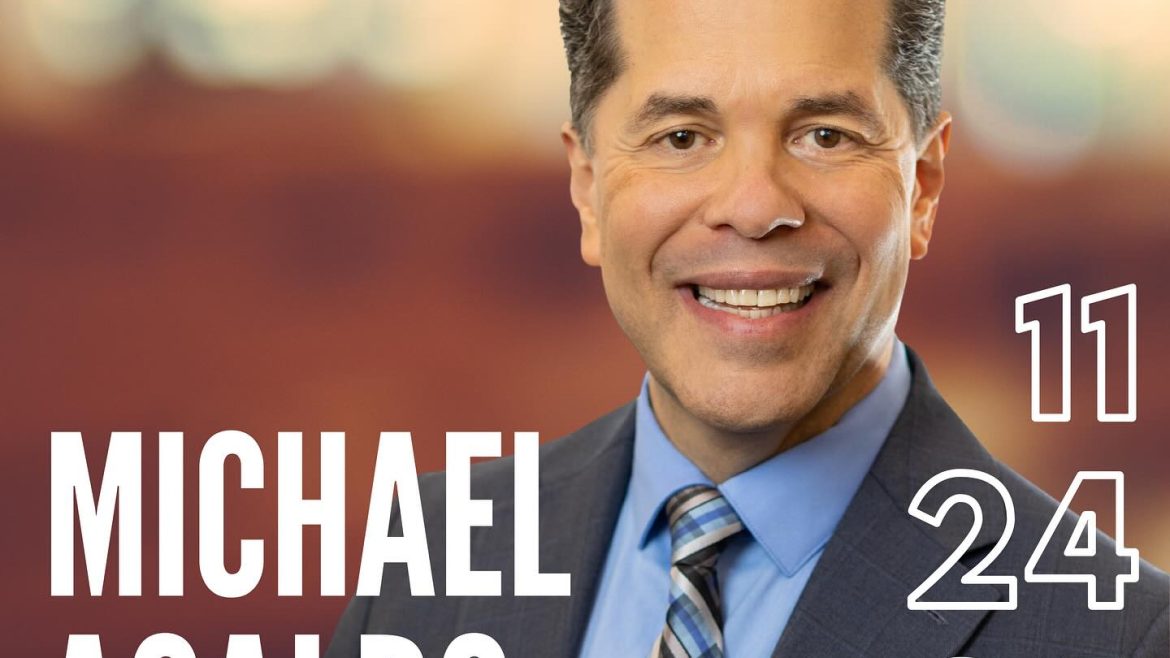
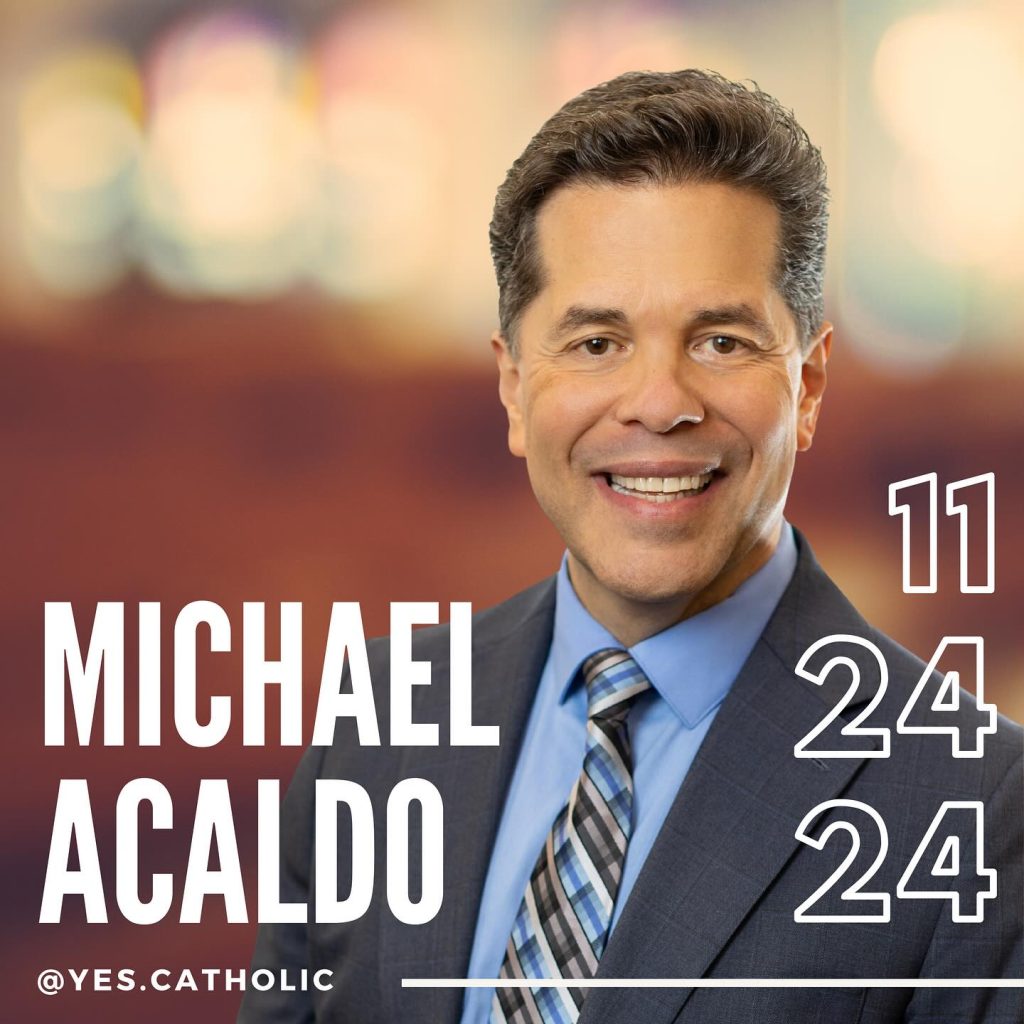 The Society of St. Vincent de Paul USA’s CEO Michael Acaldo was recently featured on the weekly podcast Yes Catholic.
The Society of St. Vincent de Paul USA’s CEO Michael Acaldo was recently featured on the weekly podcast Yes Catholic.